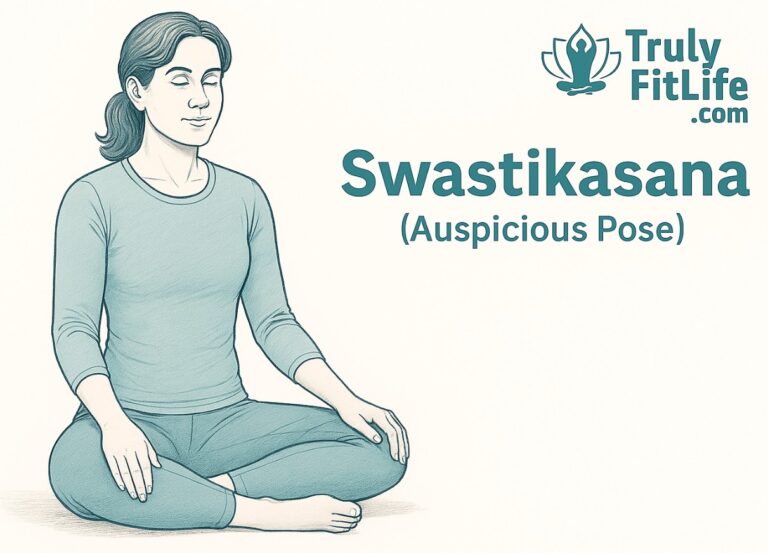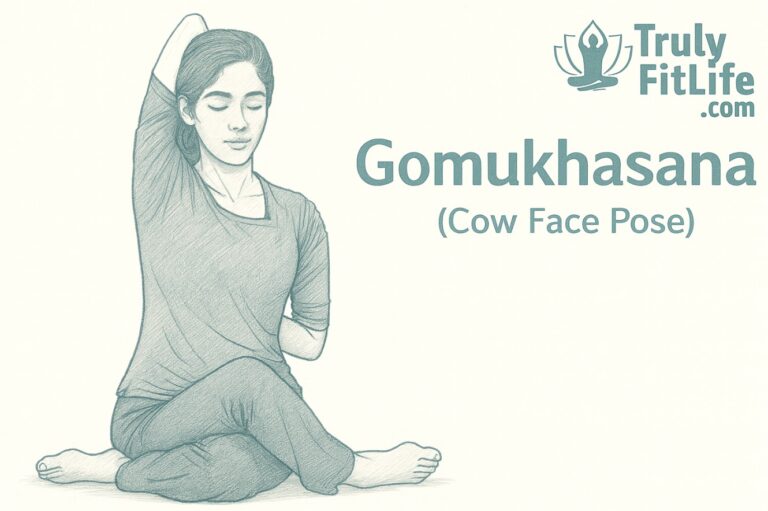
What Is Hands Bound Mountain Pose?
Baddha Hasta Tadasana is a powerful variation of the foundational Mountain Pose that incorporates a gentle chest opener and shoulder stretch. By clasping the hands behind the back or using a reverse prayer, this pose cultivates upright alignment, heart space expansion, and grounded awareness. It’s perfect for posture correction, energy balance, and breathing enhancement.
Step-by-Step Instructions
- Foundation
– Stand tall with feet together or hip-width apart. Distribute your body weight evenly. - Legs & Pelvis
– Engage thighs, lift kneecaps gently. Tuck tailbone slightly for pelvic neutrality. - Torso & Spine
– Elongate spine, lifting from tailbone to crown. Avoid flaring the ribs. - Arms & Shoulders
– Bring hands behind the back. Either clasp them or join palms in a reverse prayer. Open across the chest and draw shoulder blades down. - Head & Breath
– Keep chin level. Inhale to expand the chest, exhale to soften shoulders. - Hold
– Stay for 30–60 seconds while breathing deeply. Then release gently into Tadasana.
Health Benefits of Baddha Hasta Tadasana
Postural & Musculoskeletal
- Strengthens upper back and aligns spinal curves
- Opens chest and stretches front shoulders and biceps
- Reduces upper back stiffness from sedentary work
Breath & Circulation
- Expands lungs for better oxygen intake
- Enhances venous return and improves circulation
Mental & Energetic
- Opens heart chakra (Anahata), encouraging compassion
- Grounds and centers attention inward
Alignment Tips
- Keep shoulders relaxed and not overly pulled back
- Avoid excessive rib flaring—engage your core
- Slightly bend knees to reduce joint stress
- If palms don’t meet, hold a strap or opposite elbows
Modifications & Variations
- Use a Strap: Hold strap between hands if flexibility is limited
- Clasp Elbows: Hold opposite elbows behind the back
- Standing at Wall: Back to a wall helps improve awareness of posture
Contraindications & Safety
- Avoid if recovering from shoulder, wrist, or elbow injuries
- Don’t force reverse prayer—opt for easier modifications
- Practice gently if prone to dizziness or blood pressure issues
When to Integrate
- Warm-Up: After shoulder rolls or sun salutes
- Posture Reset: In standing flows or after seated work
- Daily Practice: Combats tech-neck and slouched shoulders

